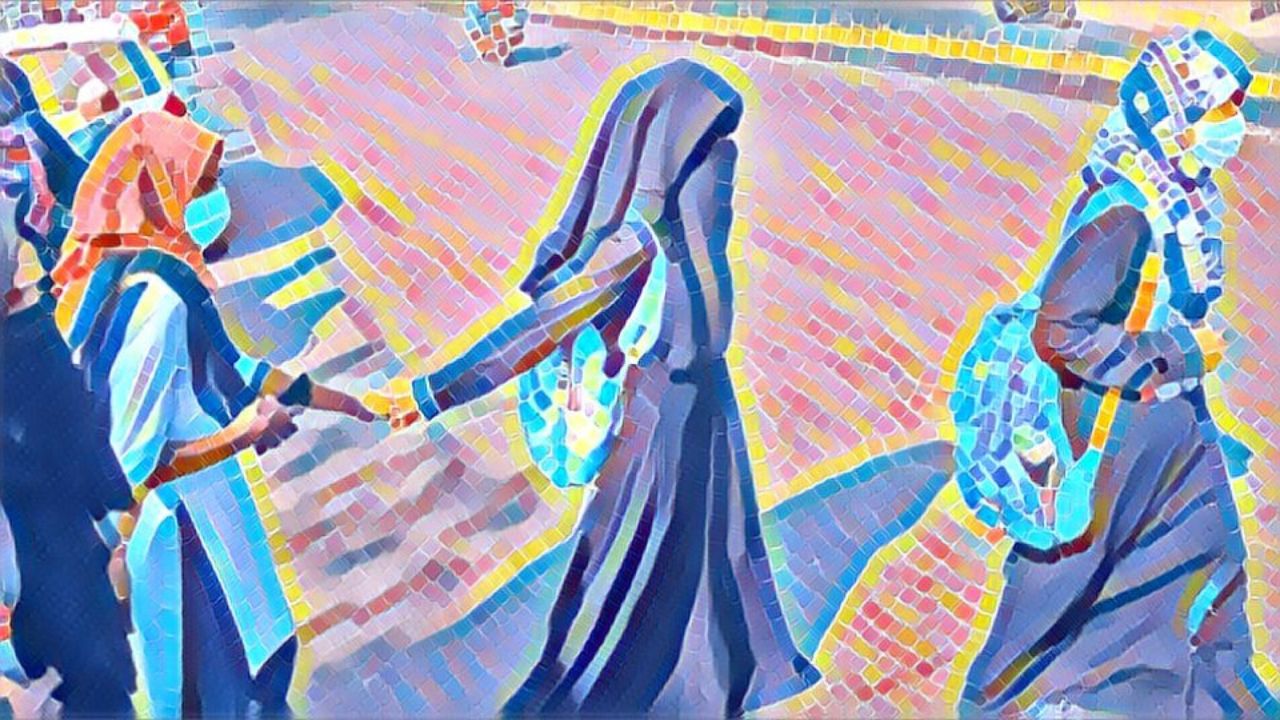The Karnataka High Court verdict on the hijab case has amounted to a comprehensive and egregious violation of the fundamental rights guaranteed by the constitution, including the right to education as well as the right to liberty, dignity, equality, and the preambular principle of fraternity, reveals a report by the People’s Union for Civil Liberties (PUCL).
The 43-page report titled ‘Impact of Hijab Ban in Karnataka’s Educational Institutions’, highlights human rights violations, including bullying of hijab-clad students and harassment of female students by other students and visitors.
The Supreme Court is currently hearing arguments regarding the ban on hijab in educational institutions in the state after the Karnataka High Court upheld a state government ruling that effectively forbade Muslim students from wearing the hijab in schools and colleges.
The report discusses how the verdict affected Muslim female students’ academic, social, and psychological well-being. Numerous Muslim women across Karnataka have been denied access to education as a result of the hijab prohibition at state institutions, it said.
The report said that the state government completely ignored its constitutional obligation in its “single-minded focus on ensuring that the hijab was prohibited in colleges”. Many students had to drop out of college because of the judgement.
The verdict in Resham v. State of Karnataka shattered their dreams and plans of further education, the PUCL report said. “The verdict is closing avenues that modern education has opened up for these young women from the leading minority community. Muslim women students are being driven to make a cruel choice—between the hijab and education. Making either choice is difficult, especially because of the sensationalism that surrounds the whole issue whereby choosing both is not even perceived as an option,” it noted.
In the verdict in Resham v. State of Karnataka, the Court had ruled that the state had the power to prescribe a uniform, and the uniform was a reasonable restriction on fundamental rights that the students could not object to.
In the aftermath of the hijab verdict, the report stated that the Muslim women students are facing social boycotts, threats (including rape) and other prohibitions, as well as intrusive surveillance and, are being ‘outed’ on social media.
Throughout the controversy, Muslim female students have also had to face the loss of contact and friendships with fellow students from other communities. The report said it has engendered a deep sense of isolation and depression. It has also caused a setback to their social advancement.
The media ignored the hostile environment created by the anti-hijab protesters on campuses who wore saffron shawls to counter the hijab-wearing students and hate speech against them.
In the testimony to PUCL, students said that some people harassed them in public, using words such as “O Hijab” and “O Burkha” towards them. Even some teachers in their college would refer to them using such terms.
Some educational institutions perpetuated harassment rather than protecting students. “College managements have allowed the Sangh Parivar activists from outside to enter the college premises and cause widespread disruption in the functioning of the college,” the report noted.
Speaking of the psychological impact of the hijab row in Karnataka, one of the students told PUCL that the whole process was exhausting their mental health and was a punishment in itself which could also affect the education of a student.
“Muslim girls enter college with a dream and a vision about their higher education. When these kinds of incidents take place, they might also develop hatred toward the idea of education. The students might struggle to even understand how they understand the discrimination meted out to them when principal, teachers and others treat them so. There is no conducive environment for the Muslim girls to enter the colleges.”
“We should not allow that to happen,” PUCL criticized the psychological harassment of hijab-wearing students, and urged, “We do not want to go back to the earlier India where people were uneducated. All the girls must get an education and this must happen through governmental apparatus.”
Police presence on college campuses created a hostile environment among hijabi students, the report stated.
The team also observed that the government including the police, the bureaucracy, and the court, were more concerned about the implementation of what they understood as the hijab ban in the strictest possible manner, and all forms of recourse, through pleas or through protests, had to be curtailed.
Muslim women facing human rights violations, harassment of students by the media on campuses, curtailing the right to dissent, harassment of Muslim students by other students and outsiders, creation of a hostile environment by saffron shawl-wearing protesters, educational losses and hate speech were mostly left unattended.
In the report, PUCL urged the chief minister to decisively rescind the notification authorizing the prohibition of the wearing of the hijab.
It also urged the human rights commission and minority commission to register suo moto complaints against the principals and CDCs of colleges for violating the fundamental rights of the concerned students and initiate actions at the earliest.
The court must issue a directive to the government to conduct a comprehensive inquiry into lost years and expenses incurred as a result of this order and ensure that compensation to the women and their families is paid, it added in its recommendation.











































